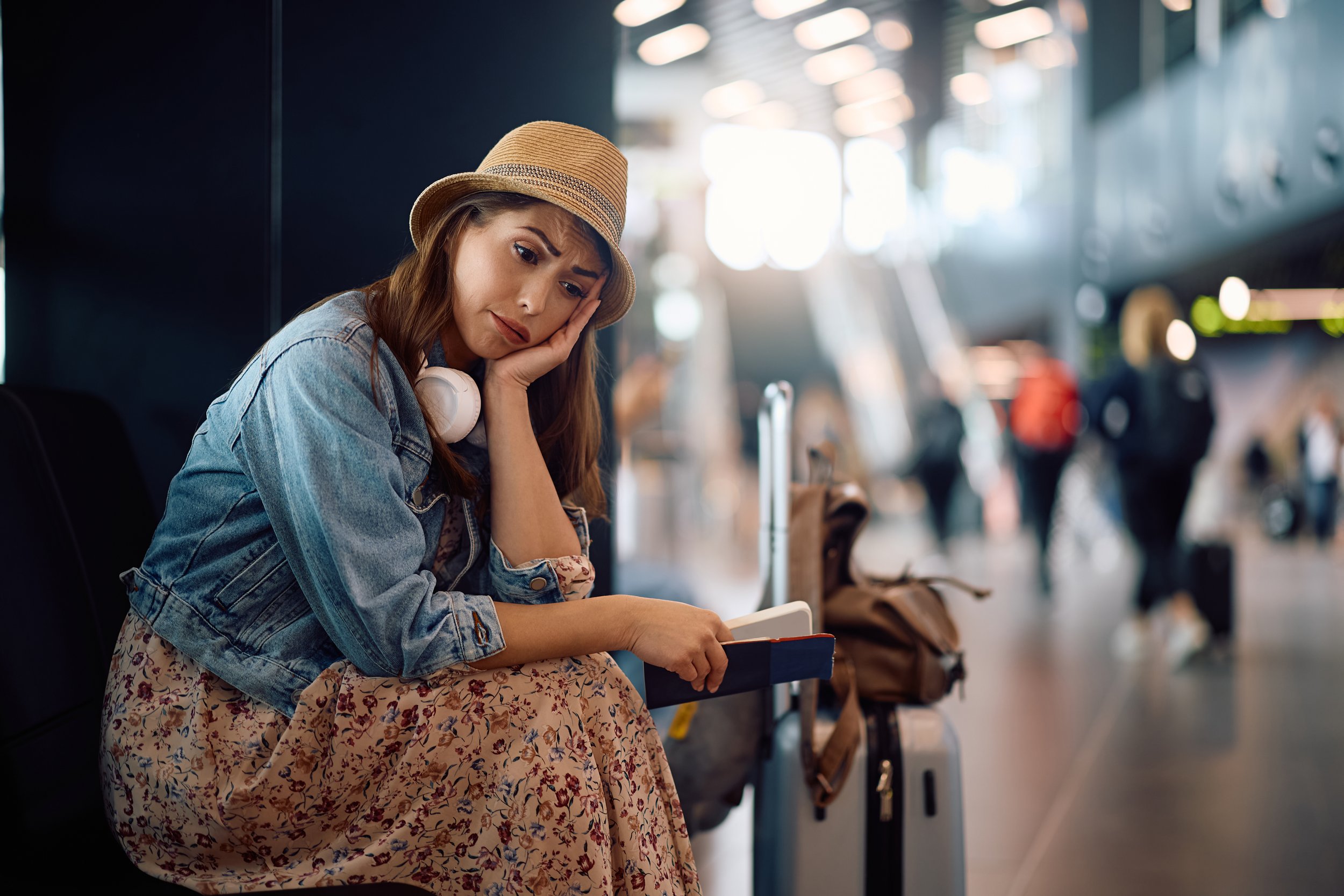Travel Anxiety and our Mental Health
Travel anxiety occurs in the mind. It is very real and is also known as travel-related stress or travel phobia, refers to the heightened sense of worry, fear, or discomfort that some individuals experience when faced with the prospect of travelling. It can affect people at any point in their journey—before, during, or after travel. This form of anxiety can negatively affect a person’s mental health, impacting their ability to enjoy or even proceed with their trip and can even manifest with physical symptoms.
WHY SOME PEOPLE MAY HAVE TRAVEL ANXIETY
People may experience travel anxiety for various reasons, often stemming from their fear of the unknown or concerns about potential risks associated with the trip. Local travel anxiety often stems from unique, localised challenges that travellers encounter. Here are some of the most common reasons:
ROAD ACCIDENTS: Fear of unsafe driving, poor road conditions, or vehicle breakdowns on poorly maintained roads.
KIDNAPPING AND CRIME: Concerns over personal safety, especially in areas with higher rates of crime or kidnapping.
UNLAWFUL HARASSMENT: Anxiety around the potential for unwarranted stops, questioning, or extortion from law enforcement while travelling.
COST OF TRANSPORTATION: Financial stress due to high or unpredictable travel costs, especially during peak travel times or economic instability.
FEAR OF THE UNKNOWN: Uncertainty about the destination, unfamiliar locations, whether one would get to their destination unscathed, and cultural differences.
FINANCIAL STRESS: The pressure of budgeting, expenses, or managing money during travel.
LOGISTICAL ISSUES: Worries about transportation delays, sudden flight changes and cancellations, unreliable transit schedules, or issues with directions and navigation.
SOCIAL ANXIETY: Discomfort in busy or unfamiliar spaces, especially when in congested areas.
PAST NEGATIVE EXPERIENCES: Prior experiences of delays, crime, or other traumatic and unpleasant situations may leave individuals about to travel having lingering anxiety.
SYMPTOMS OF TRAVEL ANXIETY
Symptoms of travel anxiety can vary, often including:
RESTLESSNESS AND IRRITABILITY
TROUBLE SLEEPING BEFORE TRAVEL
RAPID HEARTBEAT OR SWEATING
STOMACH DISCOMFORT OR NAUSEA
AVOIDANCE OF PLANNING OR OUTRIGHTLY CANCELLING TRIPS
HOW TO OVERCOME TRAVEL ANXIETY
PLAN AND PREPARE AHEAD:
Research your route and destination thoroughly, check transportation options, and be aware of the safest routes and any high-risk areas, book accommodations in advance, make a packing list, and have a solid itinerary. Knowing these details and being well-prepared reduces the fear of the unknown, helps you feel more in control, can give you more confidence and reduces uncertainty.
PRACTICE RELAXATION TECHNIQUES:
Incorporate deep breathing, mindfulness, or light stretches to calm yourself before and during the journey. These can help manage stress responses and keep your mind focused on the present.
POSITIVE SELF-TALK:
Challenge negative thoughts by reminding yourself that you are capable of handling any situation that may arise and that travel can be a positive experience. Reframing travel as an opportunity rather than a threat can help reduce anxiety.
LIMIT CAFFEINE AND SUGAR:
Opt for water or herbal teas to stay hydrated and reduce stimulants that can elevate anxiety.
TAKE BREAKS AND MOVE YOUR BODY:
Physical activity helps reduce anxiety, so make sure to include light exercise in your routine before and during travel. Whether it’s stretching, walking, or doing light yoga, movement releases tension and helps improve mood.
SEEK SUPPORT FROM FRIENDS, FAMILY, OR PROFESSIONALS:
Talking to someone who understands your concerns can be immensely helpful. Reach out to supportive friends or family members. If travel anxiety significantly impacts your daily life, consider speaking to a mental health professional for additional support and strategies.
START SMALL:
If travel anxiety is severe, consider starting with small trips close to home. Gradually increasing the distance and complexity of your trips can help desensitise you to the stress of travel over time.
CREATE A COMFORT KIT:
Bring a small kit with essentials that bring comfort, such as snacks, water, headphones, and a relaxing playlist. Having these on hand can help calm your nerves throughout the journey.
FOCUS ON THE POSITIVE EXPERIENCES:
Shift your focus from the potential problems to the joys of travel. Embrace the opportunity to see new places, meet new people, and create memories. Focusing on the positive aspects of travel can counterbalance anxiety.
CONCLUSION:
Travel anxiety is common and can present real challenges, but it doesn’t need to hold you back from reaching your destination. By understanding and preparing for your specific triggers and utilising coping techniques, you can learn to manage this anxiety effectively thereby improving your mental health. Remember, travel is about discovery—not only of new places but also of your own resilience and capacity for growth. You will discover new places and find comfort in your own capabilities. Take each journey step by step, knowing that each trip strengthens your confidence and skill for navigating future travel.
If things are getting out of hand, please call us on +234 814 831 8965 or send us an Email at: info@copeandlive.foundation
